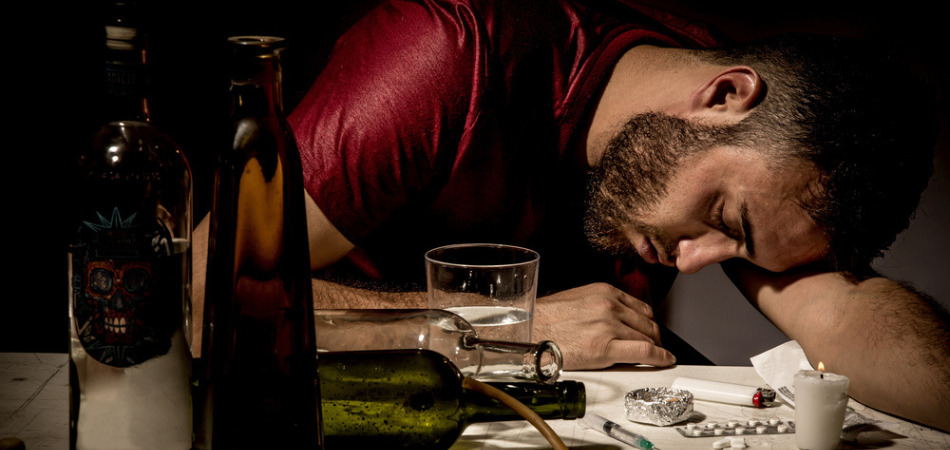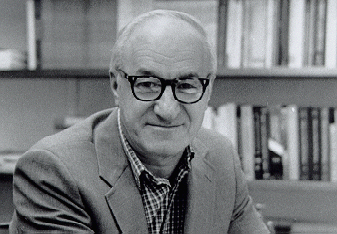Last Updated:
July 10th, 2025
If you want to overcome alcohol addiction, then willpower, professional treatment and ongoing support are all critical. But how we learn from others is also an incredibly important part of the puzzle. Social Learning Theory (SLT), developed in the 1960s and 70s by psychologist Albert Bandura, is based on the idea that much of our behaviour, including drinking, is learned by observing others. For those in alcohol addiction recovery, SLT offers powerful insights into how drinking habits are formed and, crucially, how they can be broken.
Whether you’re in alcohol rehabilitation yourself, supporting a loved one or you work in the alcohol recovery field, understanding SLT can open brand new doors to healing.
Albert Bandera
https://albertbandura.com/bandura-bio-pajares/albert-bandura-bio-sketch.html
What is Social Learning Theory?
Social Learning Theory suggests that our habits don’t come from some inherent desire or instinct but are actually subconsciously learned behaviours. According to SLT, we are psychologically wired to watch, imitate and repeat, especially when we see a behaviour that leads to some kind of reward.
Crucially, this pattern isn’t just something that happens in childhood (although still-growing brains are particularly susceptible), with our habits, beliefs and behaviours shaped every day by the people around us.
- Attention: We focus on what others are doing, particularly people we respect, admire or relate to.
- Retention: We remember what we have seen and how it was done.
- Reproduction: We try the behaviour ourselves.
- Motivation: If the outcome is positive (for example, if it leads to social approval, stress relief or feelings of pleasure), we are more likely to do it again.
SLT says that this four-stage process is how we learn everything from language and manners to stress management and parenting styles.
How we learn to drink: Alcohol addiction and SLT
Nobody sets out to become addicted to alcohol. Drinking often starts as a learned behaviour, something we see others doing and then try ourselves. This is especially true if you grew up in environments where drinking was common or encouraged.
While we know that addiction has a genetic element to it (which is one reason why it seems to run in families), Social Learning Theory helps explain another reason why some people are more vulnerable to alcohol addiction than others.
For example:
- If a teenager sees a parent using alcohol to unwind every night, they may learn to associate drinking with stress relief.
- If someone is part of a friend group that drinks heavily and regularly, they may come to see this as normal, even expected.
- If alcohol use is praised or rewarded (“You’re more fun when you drink!”), it can reinforce the behaviour even more.
In this way, alcohol addiction can take root not just in biology or trauma but in learned patterns of behaviour. The impact is evident in countries where alcohol is so prevalent in society (like the UK), which see worryingly high numbers of alcohol-related deaths. In England and Wales in 2023, for instance, there were 10,473 deaths, the highest on record.
While it is impossible to quantify the impact of every contributing factor, there is no doubt that the drinking habits of many Brits who develop an alcohol addiction and tragically die as a result have been shaped by those around them. This is why it is so important to address the social and behavioural factors contributing to alcohol addiction and abuse.
Using Social Learning Theory in alcohol addiction recovery
The good news is that if alcohol addiction is learned then it can also be unlearned and, crucially, replaced with healthier behaviours. That is where Social Learning Theory can become a powerful tool in addiction recovery. As Albert Bandura himself once said:
“Psychology cannot tell people how they ought to live their lives. It can, however, provide them with the means for effecting personal and social change.”
Here is how SLT can help:
SLT-based group therapy
Group therapy sessions often use the principles of Social Learning Theory without even naming it. In these settings, alcohol rehab clients learn from each other about how to set boundaries, how to talk about hard things and how to stay sober through issues like grief or stress. Seeing others grow during sessions can help build your own belief in the possibility of change.
Positive role models
After alcohol rehabilitation is finished, surrounding yourself with people who are dedicated to a sober life can make a huge difference to preventing relapse. Watching them face their triggers, handle stress and find joy without alcohol teaches you new ways to cope with your own issues. That is why peer support groups like Alcoholics Anonymous and post-rehab alumni programmes can be invaluable both because of the advice you receive but also for the examples they set.
Rewarding new habits
SLT tells us that people are more likely to repeat behaviours that bring positive outcomes. That is why it is so important to celebrate small wins in alcohol recovery. These could be anything from getting through a tough day sober, attending therapy for a whole month without missing a session or reconnecting with loved ones who had been pushed away. The rewards don’t have to be big and even praise, encouragement or a sense of pride can go a long way.
Rewriting the script
Many people in alcohol addiction recovery find themselves stuck in old patterns. Using the ideas behind SLT, therapy can help you reflect on where you learned those patterns and how to rewrite them. Cognitive-behavioural therapy (CBT), for example, helps people replace learned negative thinking with healthier beliefs, while dialectical behaviour therapy (DBT) offers real-life coping skills for when alcohol cravings hit.
The role of family and friends in SLT for alcohol recovery
Families can play a crucial role in alcohol recovery by creating environments that support healing rather than enabling harmful behaviours. When your loved ones understand how behaviours are learned, they can help you adjust to life after alcohol rehabilitation by:
- Encouraging healthy routines
- Celebrating your progress
- Avoid unintentionally enabling your drinking
- Creating a sober home environment for you to come home to
- Not drinking in front of you
- Accompanying you to AA meetings, taking up new hobbies with you and other positive, supportive actions
To help families with a loved one in recovery, top rehab centres like UKAT provide family therapy where approaches like SLT can be explained. This gives families the knowledge and support they need to shift unhealthy drinking habits together.
Final thoughts
Social Learning Theory reminds us that alcohol recovery isn’t something we have to do alone. For those on the path to sobriety, understanding how behaviour is shaped by the people around us can offer hope and clarity. It is often said that “connection is the opposite of addiction” which is why it is so important to stay close to positive influences like your family, alcohol rehabilitation peers and all the therapists and counsellors you met during treatment.
The beauty of Social Learning Theory is that it is an ongoing process. Every day presents a new opportunity to model strength, choose a better path and absorb healthy behaviours from others. This is especially helpful when returning to your family and community after residential alcohol rehabilitation.
Whether you’re learning to let go of old habits, embracing a new identity or simply watching others to figure out your next step, Social Learning Theory gives us one incredibly powerful truth:
We are always learning and that means we are always capable of changing.
If you or a loved one is struggling with alcohol addiction, know that there is support available. At UKAT, our alcohol addiction recovery programmes combine evidence-based therapies with incredible opportunities for real human connection. Let us help you learn a new way to live, one day, one choice, one step at a time.
(Click here to see works cited)
- Cherry, Kendra. “Quotes From Albert Bandura on His Theories.” Verywell Mind, 27 July 2023, https://www.verywellmind.com/albert-bandura-quotes-2795687. Accessed 2 May 2025.
- Office for National Statistics. “Alcohol-specific deaths in the UK: registered in 2023.” Alcohol-specific deaths in the UK – Office for National Statistics, 5 February 2025, https://www.ons.gov.uk/peoplepopulationandcommunity/healthandsocialcare/causesofdeath/bulletins/alcoholrelateddeathsintheunitedkingdom/registeredin2023. Accessed 2 May 2025.
- Simply Psychology. “Albert Bandura’s Social Learning Theory In Psychology.” Simply Psychology, https://www.simplypsychology.org/bandura.html. Accessed 2 May 2025.






